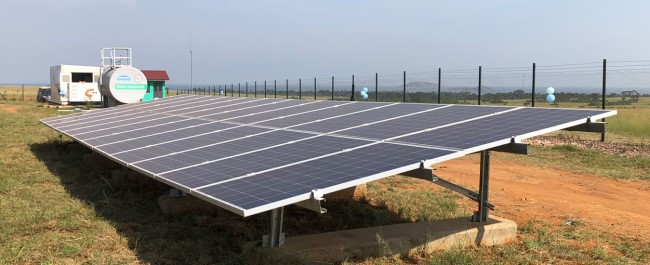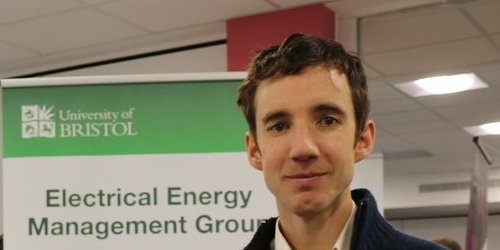Decentralised urban energy access

Understanding the decentralised energy paradigm in urban Africa, through case studies in Uganda and The Gambia.
The challenge
In Global South cities, large scale, centralised energy systems have many issues. Most importantly, they have often failed to provide universally accessible, affordable, and ecologically sustainable energy options to their population. The decentralisation of energy systems has been presented as a solution to the limitations of centralised systems.
What this decentralisation means across contexts differs, spanning on- and off-grid, regulated and unregulated, systems and technologies. This decentralised approach is often juxtaposed with a highly centralised, global supply chain of technologies and fuels, providing local businesses with limited possibilities to add value to the energy system beyond installation or develop maintenance or repair capabilities.
To be able to effectively leverage the decentralised energy system opportunity, technology, governance, policy, finance, industry and consumers all need to align towards this goal.
What we're doing in partnership
We are working together with the African Centre for Cities, University of Cape Town and United Purpose (The Gambia), strengthening existing relationships and developing a new whole system approach to examining the opportunities and pitfalls of decentralised energy systems.
This approach will be tested in two urban areas, Kampala, Uganda, and Banjul, The Gambia, where key stakeholders in the energy systems area will be interviewed, with decentralised energy case studies examined to understand the barriers and opportunities presented.
This contributes to Bristol’s work in the interdisciplinary analysis of whole energy systems, presenting an opportunity to identify clear transitional pathways and obstacles to achieve universal modern energy access for urban and peri-urban populations.
How it helps
This project tackles the lack of clear understanding between the aspirations and realities of decentralised energy projects, using a stakeholder-based, case study analysis. This allows us to build up a clear view of where the benefits and drawbacks are from these systems, and where institutional, social, and cultural barriers cause projects to fail to meet their goals.
We will collect detailed information in both Uganda and The Gambia on their decentralised energy projects, policies and industry to clearly map where changes need to be made to support achievement SDG7 - access to affordable, reliable, sustainable modern energy for all.
We will use this information to provide a clear policy white paper to start a discussion with national and municipal governments, donors and industry to enable improved energy access for urban populations.
Collaborate with us
If you would like to contact us about future research, please contact Dr Sam Williamson (sam.williamson@bristol.ac.uk).
Investigators
Principal Investigator: Dr Sam Williamson, University of Bristol
Co-Investigator: Dr Charlotte Ray, University of Bristol
Co-Investigator: Dr Liza Cirolia, African Centre for Cities, University of Cape Town
Co-Investigator: Dr Lauren Hermanus, African Centre for Cities, University of Cape Town
 Lead researcher profile
Lead researcher profile
Dr Sam Williamson, Lecturer in Electrical & Electronic Engineering
 Researcher profile
Researcher profile
Dr Liza Rose Cirolia, African Centre for Cities, University of Cape Town
 Researcher profile
Researcher profile
Dr Lauren Hermanus, African Centre for Cities, University of Cape Town
Related research centres
Partner organisations
- African Centre for Cities, University of Cape Town
- United Purpose, The Gambia